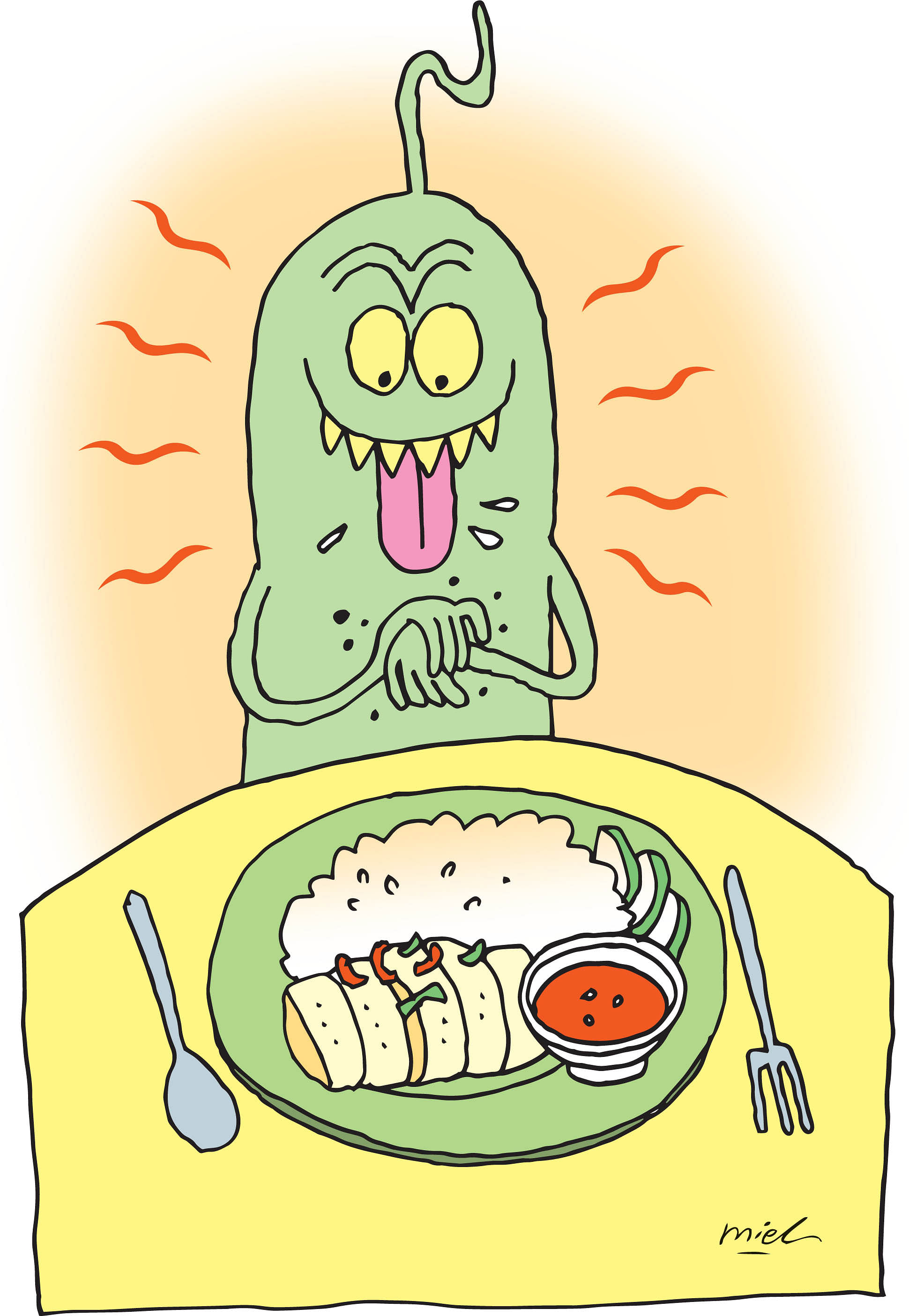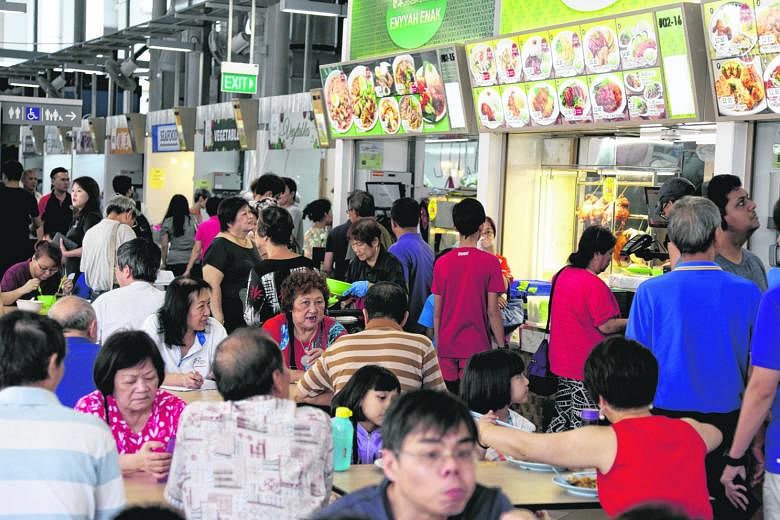Fourteen students fell sick with food poisoning after eating contaminated fried rice last September.
To minimise the risk of food poisoning when ordering cooked food, here are some food safety guidelines to bear in mind.
1 CHOOSE NEA-LICENSED CATERERS
Order food from licensed food caterers, preferably those with a good hygiene grading, which can be found on the National Environment Agency's (NEA) website.
2 HOT FOOD AT LEAST 60 DEG C, COLD FOOD BELOW 5 DEG C
Food-borne pathogenic bacteria multiply quickly between 5 deg C and 60 deg C.

Food should not be kept at room temperature for more than four hours from the time it is cooked to the time it is consumed. This includes the time that is taken to pack and transport the food.
3 CHECK IF THE FOOD COMES WITH A TIMESTAMP LABEL
Caterers are required to provide a timestamp label on packed cooked meals. It should contain the date and time the food is cooked and when it should be consumed by. It is an offence to remove or alter the timestamp label.
4 PACKED MEALS SHOULD COME IN HOT OR INSULATED BOXES
Packed cooked food should be delivered in hot or insulated boxes and bags. In addition, food should be collected and consumed at about the same time, as heat is lost rapidly once the insulated boxes or bags are opened.
-
What causes food poisoning?
-
According to doctors, food poisoning is an infection of the gut from food-or water-borne infective organisms such as bacteria or viruses.
The common culprits of food poisoning are viruses such as rotavirus or norovirus.
As for bacteria, Escherichia coli, Salmonella and Campylobacter are the usual suspects.
Gastroenterologist Desmond Wai said food can be a prime breeding ground for bacteria, which thrive in warm and humid conditions.
"Keep all raw or unfinished cooked food in the fridge," he added.
In general, food-borne germs are usually transmitted via the faecal-oral route.
Dr Wai said if stools containing the virus or bacteria somehow reach the food chain, the germs will infect humans.
Incorrect cooking and serving temperatures, contaminated utensils and equipment, and poor hygiene by food handlers are prime conditions for these pathogens to thrive in, said Dr Kieron Lim, a senior consultant at Mount Elizabeth Medical Centre.
Said Dr Reuben Wong, a gastroenterologist at gutCARE: "Foods that have been frozen and thawed and re-frozen are particularly susceptible."
Food poisoning came under the spotlight recently after an investigation found that contaminated fried rice left at room temperature caused 14 students to become ill last year.
In the past years, there have been several other incidences of widespread food poisoning. Here are some of the most recent cases.
• April 2018: Nanyang Girls' High Boarding School
The school suspended its boarding school programme for a week after 110 students fell ill with cramps and diarrhoea and were diagnosed with food poisoning and stomach flu. The school then took steps to disinfect the dining and food preparation areas as well as the boarding school premises.• January 2018: Northland Secondary School
Fourteen students fell ill with stomach pain and vomiting after recess on Jan 11. Affected students were taken to the hospital. As a precautionary measure, the school closed the canteen for inspection and cleaning, and also disinfected its toilets.• November 2017: Regent Hotel
After a wedding lunch on Nov 11 last year, 43 people became ill with stomach flu symptoms. Summer Palace, a Michelin-starred Chinese restaurant at the hotel, and the hotel's banquet kitchen had been involved in preparing the food for the lunch. National Environment Agency inspections revealed lapses in both kitchens, which had their food hygiene rating downgraded from A to C.Kimberley Chia
5 DISCARD ALL UNEATEN FOOD
Uneaten food should be discarded and not packed for consumption at a later timing. To prevent food waste, consumers should also refrain from over-ordering.
6 SPECIFIC GUIDELINES FOR FOOD
Eggs
Eggs may contain Salmonella bacteria that can cause food-borne illnesses. To avoid this, ensure that egg shells are clean and not cracked when you receive them. Bacteria can enter eggs through fissures in the shells.
Fruits and vegetables
Wash fruits and vegetables thoroughly under running water before peeling or cutting them.
Cut fruits should be eaten promptly or refrigerated at 4 deg C and below.
Cut fruits left at room temperature for more than two hours should be discarded. Use a separate clean chopping board from the one used for raw food.
Steamboat
Be aware of the appearance, smell or texture of the ingredients.
Use designated utensils, including separate tongs and cutlery for raw and cooked food, to prevent contamination.
Undercooked food can contribute to a higher risk of food poisoning, so ensure food is cooked thoroughly.
Avoid these three mistakes: overloading such that the soup base does not come to a boil; adding raw items into a pot of cooked food; and placing raw food next to cooked food on a hot plate.


